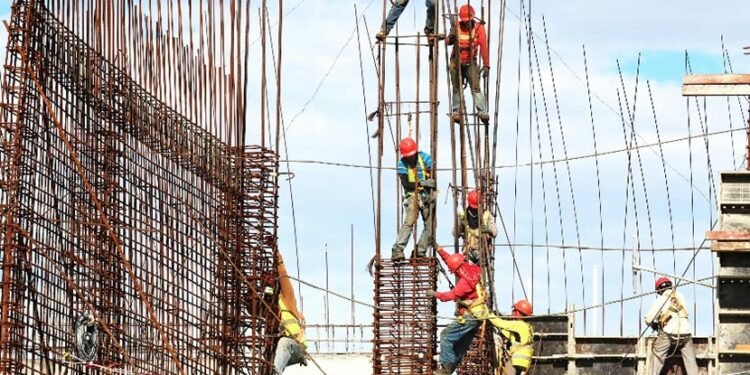Construction projects are complex undertakings that involve a web of agreements, responsibilities, and expectations. At their core are contracts, which define the scope, deliverables, and legal obligations of all stakeholders.
From property owners and contractors to subcontractors and suppliers, each party relies on these documents to provide structure and accountability throughout the project lifecycle.
Failing to understand or adhere to these obligations can lead to disputes, delays, and financial losses. This article explores the vital components of construction contracts, the challenges they present, and strategies to manage them effectively.
Resolving Conflicts in Construction Contracts
Disputes are an inevitable aspect of construction projects, stemming from delays, payment disagreements, or changes in scope. Addressing these issues promptly and effectively can prevent them from escalating into costly legal battles.
One vital tool for managing disputes is the inclusion of construction dispute resolution clauses in contracts.
These clauses outline methods like mediation and arbitration, offering parties efficient ways to resolve conflicts without pursuing litigation. Mediation involves a neutral facilitator who guides discussions to help stakeholders achieve a mutually acceptable resolution.
Arbitration, by contrast, is a more structured process where an arbitrator reviews the case and provides a binding decision.
By incorporating these mechanisms into contracts, parties can save time, reduce costs, and preserve working relationships. Early resolution of disputes ensures that projects stay on track and that all stakeholders remain focused on the common goal of successful completion. Clear documentation and proactive communication further support these efforts, reducing the likelihood of conflicts in the first place.
Defining the Scope of Work
A clear and detailed scope of work is the foundation of any construction contract. This section outlines what the project entails, who is responsible for each task, and the standards by which work will be judged. Ambiguity in this area can lead to misunderstandings, delays, and disputes that may disrupt the entire project.
For instance, the scope should specify materials, design details, and timelines to ensure all stakeholders are aligned. Terms such as “reasonable” or “adequate” should be avoided in favor of precise, measurable criteria. Payment terms must also be explicitly outlined, including milestones, amounts, and acceptable methods.
Contracts should also address potential external factors that could affect the project, such as adverse weather conditions or supply chain disruptions. Including contingency plans for these scenarios ensures that the project can proceed with minimal interruptions, even when unforeseen challenges arise.
Legal Safeguards and Remedies
Contracts serve as legal safeguards for all parties involved, protecting their interests and providing recourse in the event of non-compliance. Common legal provisions include termination clauses, force majeure conditions, indemnities, and warranties.
Termination clauses specify the conditions under which a contract may be voided, whether for cause (e.g., failure to perform) or convenience (e.g., discretionary withdrawal by one party). Force majeure clauses protect against events beyond anyone’s control, such as natural disasters or political instability, allowing for project adjustments without penalties.
Indemnity clauses clarify who is responsible for damages or losses, while warranties provide assurances about the quality of materials and workmanship. These legal safeguards reduce uncertainty and foster trust among stakeholders.
They also ensure that parties have a clear understanding of their rights and responsibilities, even in challenging situations.
Effective Communication in Construction Projects
Effective communication is essential for the successful execution of construction projects. While contracts provide a written framework, ongoing discussions, and updates are necessary to keep all parties informed and aligned.
Regular progress meetings, detailed reports, and digital collaboration tools help foster transparency and accountability. Project managers play a critical role in this process, acting as liaisons between different stakeholders to ensure that everyone understands their obligations and any changes to the project.
When communication breaks down, small misunderstandings can quickly escalate into larger conflicts. Proactively addressing issues through open dialogue prevents these problems and helps maintain the integrity of the project. Additionally, utilizing tools like shared document platforms ensures that all stakeholders have access to the latest information, further reducing the risk of miscommunication.
Regulatory Compliance and Risk Management
Compliance with local laws and regulations is a fundamental aspect of construction projects. Contracts must account for building codes, zoning laws, and environmental standards to avoid fines, delays, or legal action. Including compliance clauses in contracts ensures that all parties are aware of their responsibilities and obligations.
Regular site inspections and audits can help identify potential violations early, allowing for corrective actions before they become major issues. Engaging legal or compliance experts to review contracts and project plans is another way to mitigate risks.
Risk management provisions, such as insurance requirements or contingency plans, also play a crucial role in construction projects. These measures provide financial and operational stability in the face of unexpected challenges, ensuring that the project can proceed without significant disruptions.
Building Strong Relationships Through Contracts
Beyond the legal framework, construction contracts are tools for fostering collaboration and trust among stakeholders. Clearly defining roles, expectations, and deliverables sets the stage for a positive working relationship.
Contracts that prioritize fairness and balance create an environment where all parties feel valued and respected. For example, including provisions for shared risks and rewards encourages cooperation and mutual investment in the project’s success.
Additionally, resolving conflicts amicably—whether through dispute resolution mechanisms or open communication—strengthens relationships, paving the way for future collaborations. By approaching contracts as a foundation for teamwork rather than just a set of rules, stakeholders can achieve better outcomes for everyone involved.
Addressing Unforeseen Challenges
No construction project is immune to unexpected obstacles, whether they involve material shortages, labor disputes, or environmental factors. Contracts should include provisions for managing these challenges, such as force majeure clauses or contingency budgets.
Flexibility is key to adapting to these situations without jeopardizing the project’s success. For example, contracts can include allowances for substitute materials or extensions to deadlines under specific circumstances. Open communication and collaboration are equally important, ensuring that all parties work together to find solutions.
All in all, understanding contractual obligations is essential for the success of construction projects. Contracts serve as the backbone of project planning and execution, defining roles, responsibilities, and protections for all stakeholders. From defining the scope of work to managing disputes, every aspect of a contract contributes to a project’s success.
By emphasizing clear communication, legal safeguards, and regulatory compliance, construction professionals can navigate the complexities of their work with confidence. A well-crafted contract not only minimizes risks but also fosters collaboration, ensuring that all parties can achieve their goals effectively and efficiently.












